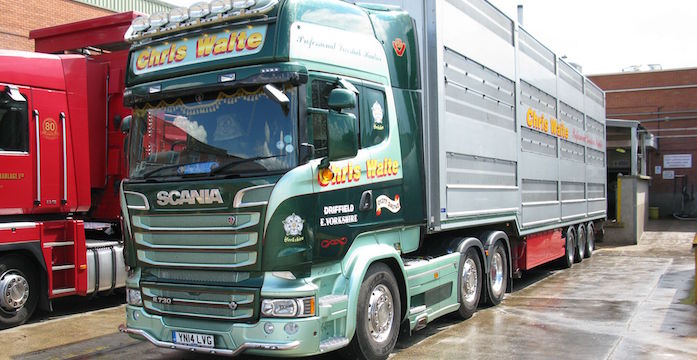MEPs have called for an EU-wide ban on the transport of animals under 35 days, as part of series of measures to improve the welfare of animals during transport, a move that could have a big impact on EU weaner movements.
They are also advocating phasing out the movement of breeding stock and are calling for new temperature limits for livestock journeys and the introduction of CCTV in livestock transport.
An EU Parliament inquiry into the protection of animals during transport (the ANIT committee), set up in June 2020 to investigate alleged violations of EU rules, reported its findings on Thursday. It concluded that EU provisions in this area are not always complied with in member states and do not fully take into account the different transport needs of animals.
MEPs gathered information from citizens and NGOs on animal welfare violations during transport, including a lack of headroom, water or food supply, the shipping of animals being unfit for transport, overcrowding, the use of inappropriate vehicles, transport during extreme temperatures and extended journey times.
The report, elaborating the main findings of the investigation, was adopted by 30 votes in favour and one abstention.
Based on the findings, the ANIT committee approved a set of draft recommendations by 24 votes to 1, with 5 abstentions, including a call on the Commission and EU countries to ‘step up their efforts to respect animal welfare during transport and update EU rules’.
Key recommendations
MEPs call for the introduction of CCTV cameras on transport vehicles, especially for loading and unloading operations, to ‘safeguard operators who comply with the rules’.
They also ask national authorities to approve animal travel plans only if the forecasted temperature is between 5ºC and 30ºC, alongside new rules to introduce temperature, humidity and ammonia recording devices in vehicles.
In potentially the most significant step for the EU pig sector, MEPs also urge the Commission to establish journey time limits covering all animal species and ages, and for a ban on the transport of very young animals below the age of 35 days. The transport of unweaned animals over the age of 35 days should be avoided and allowed only in cases where the journey is under two hours, the MEPs.
This could significantly affect weaner movements within and between EU countries.
The MEPs advocate a transition to ‘a more efficient and ethical system, that favours the transport of semen or embryos over breeding stock, and carcasses and meat over animals being moved for slaughter’.
They call on the Commission to ‘urgently present’, no later than 2023, an action plan to support this transition, including a proposal on a specific fund to minimise the socio-economic impacts of the changes that need to be made.
They also address the transport of animals to non-EU countries, for which they say there is no control system in place. The MEPs demand member states inspect all consignments to non-EU countries, with a special focus on the access of animals to feed and water, the functioning of drinking devices, and the space and headroom for the animals. Live animal export should be approved only if it complies with European animal welfare standards, the committee said.
While the UK introduced its own set of welfare in transport changes earlier this year, including a ban on live exports for fattening or slaughter, the EU changes, once they have been through the Brussels legislative process, could affect live breeding pig exports, although these are currently on hold due to a lack of inspection posts at EU ports, post-Brexit.
The proposals will also raise questions about livestock movements between Ireland and Northern Ireland and the rest of the UK.
Comment
EP rapporteur Daniel Buda (EPP, RO) said: “Proper animal welfare during transport is in the shared interest of farmers, consumers and the whole supply chain. Decisions taken in the European Parliament must take into account of the realities around us.
“The transport of live animals is an important branch of the EU’s economy, and important for the financial survival of our farmers. The transport of live animals both within the European Union and in third countries must continue while, of course, respecting legislation and improving welfare standards.”




